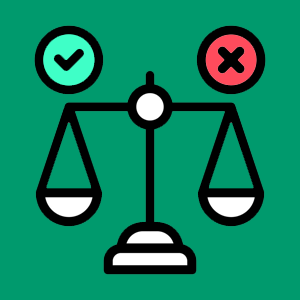 In the rapidly evolving landscape of technology, software engineers wield immense power. They are the architects of the digital age, crafting the algorithms, applications, and systems that shape our lives. Yet, with great power comes great responsibility, and software engineering ethics has become an increasingly critical topic. This article delves into the multifaceted world of ethical dilemmas faced by software engineers and offers guidance on navigating these complexities in our digital era.
In the rapidly evolving landscape of technology, software engineers wield immense power. They are the architects of the digital age, crafting the algorithms, applications, and systems that shape our lives. Yet, with great power comes great responsibility, and software engineering ethics has become an increasingly critical topic. This article delves into the multifaceted world of ethical dilemmas faced by software engineers and offers guidance on navigating these complexities in our digital era.
The Ethical Imperative
The importance of ethics in software engineering cannot be overstated. Software engineers hold the keys to creating tools that influence our daily lives, from social media platforms that shape public discourse to autonomous vehicles that navigate our streets. Ethical considerations are not an afterthought; they are foundational to the development process.
The Digital Age Dilemmas
The digital age presents a host of ethical challenges that software engineers must confront:
- Privacy Invasion: The collection and misuse of personal data have raised profound concerns. Software engineers often grapple with the ethical implications of building systems that gather vast amounts of user information. Balancing the need for data-driven applications with the protection of individual privacy is a complex ethical dilemma.
- Algorithmic Bias: Algorithms, often created by software engineers, can perpetuate bias and discrimination. Whether it’s in hiring algorithms or predictive policing systems, engineers must consider the ethical consequences of their code. Eliminating bias and ensuring fairness is a paramount concern.
- Artificial Intelligence and Autonomy: As artificial intelligence and autonomous systems become more prevalent, software engineers face ethical dilemmas regarding the potential for harm. Decisions made in code can have life-or-death consequences, as seen in self-driving car accidents and military AI applications.
- Cybersecurity and Hacking: The ethical responsibility of software engineers extends to cybersecurity. While engineers develop defensive mechanisms to protect systems, some may be tempted to engage in hacking or the creation of malicious software. The line between ethical and unethical behavior in this domain is often blurred.
- Environmental Impact: The digital world has a substantial carbon footprint, and software engineers play a role in mitigating or exacerbating this impact. Ethical considerations include energy-efficient coding practices and sustainable data centers.
Navigating Ethical Dilemmas
To address these ethical dilemmas, software engineers must adopt a holistic approach:
- Ethical Frameworks: Engineers should be well-versed in ethical frameworks, such as utilitarianism, deontology, and virtue ethics. These frameworks provide a foundation for making ethical decisions and weighing the consequences of their actions.
- Codes of Ethics: Organizations like the Association for Computing Machinery (ACM) and the IEEE Computer Society have established codes of ethics for software engineers. These codes provide guidelines on professional conduct and serve as valuable references.
- Ethics Training: Continuous education on ethics is essential. Software engineers should participate in workshops, seminars, and courses that explore ethical considerations in technology.
- Ethical Review Boards: Large tech companies are increasingly establishing ethical review boards to evaluate the potential consequences of their projects. Engineers should actively engage with these boards and voice concerns when they arise.
- Whistleblowing: In cases where unethical behavior or projects that endanger the public good are encountered, software engineers should feel empowered to blow the whistle and report such practices.
- Transparency and Accountability: Software engineers should advocate for transparency in their organizations. They should work to ensure that algorithms and systems are explainable and accountable, enabling oversight and scrutiny.
Conclusion
In the digital age, software engineering ethics is not an optional consideration but a fundamental pillar of responsible technology development. Software engineers wield immense power to shape our world, and with that power comes a profound responsibility to act ethically. By embracing ethical frameworks, participating in ongoing education, and advocating for transparency and accountability, software engineers can navigate the complex ethical dilemmas that define our digital era. The future of technology depends on it.
